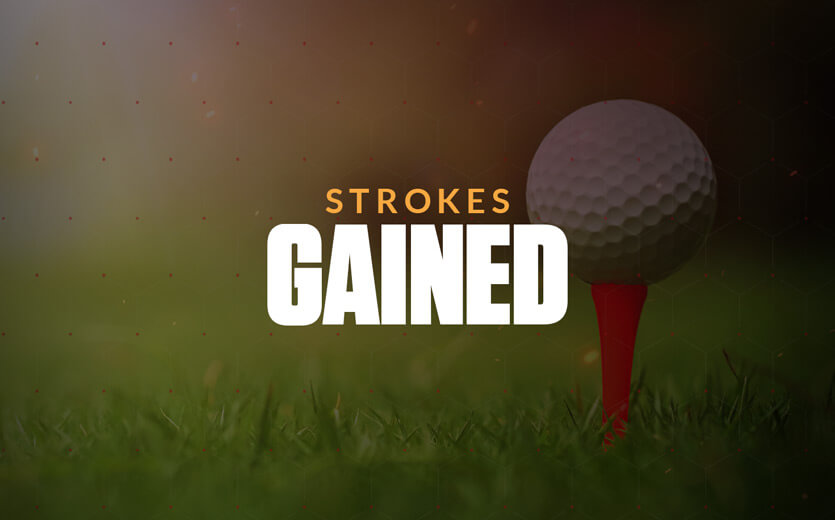How to Use Strokes Gained for Successful Golf Bets

Throughout this hub, and more generally in the golf world, you’ll see a lot of talk about “Strokes Gained.” You’d be forgiven for thinking that SG is either:
a) A dumb way of talking about scoring
b) An impenetrable stat for stat-head losers like this writer.
It’s not. It’s a very helpful and easy-to-understand stat that helps you understand not only the performances of the best golfers in the world, but the contours of their abilities as well. It’s also very useful for betting, due to the insight it provides.
- BETMGM SPORTSBOOK
USE CODE SBD1500 & GET $1,500 BACK IN BONUS BETS
- BET365 SPORTSBOOK
BET $5 & GET $150 IN BONUS BETS WITH CODE DIME365
- FANATICS SPORTSBOOK
BET & GET UP TO $1,000 IN BONUS BETS!
- DRAFTKINGS SPORTSBOOK
BET $5 & GET $150 IN BONUS BETS INSTANTLY!
- FANDUEL SPORTSBOOK
BET $5 & GET $150 IF YOUR BET WINS
- CAESARS SPORTSBOOK
USE CODE SBD2DYW & BET $1 TO DOUBLE THE WINNINGS ON YOUR FIRST 10 BETS!
Must be 21+. GAMBLING PROBLEM? Call 1-800-GAMBLER (CO, IL, KS, KY, MD, MI, NC, NJ, OH, PA, TN, VA, VT, WV, WY); (800) 327-5050 or gamblinghelplinema.org (MA); (877) 8-HOPENY (NY); 1-800-NEXT-STEP (AZ); (888) 789-7777 (CT); 1-800-BETS-OFF (IA); 1-800-9-WITH-IT (IN); mdgamblinghelp.org (MD); morethanagame.nc.gov (NC); 1800gambler.net (WV)
How Strokes Gained Is Calculated
- Every hole is given a benchmark score (the “average” a PGA Tour player would score)
- Similarly, every shot is given a benchmark score
- Strokes Gained is the difference between the benchmark and a player’s performance.
If you’re familiar with how play-by-play efficiency stats work, you’ll understand SG. For every shot and hole in golf, there is a PGA Tour “benchmark” (or a measure of how an average PGA Tour player would perform). Shots are categorized by the distance to the pin in yards, and the surface the shot is played off, whether it’s fairway, rough, green, sand, or “recovery”. How you perform against the benchmark is the measure of your “strokes gained.”
It’s best to use an example. Let’s say that you’re standing over your second shot on the fairway of a particularly long par four. The average PGA Tour player takes 4.2 strokes to complete it. At this distance, the average PGA Tour player will leave the ball eight feet from the hole, and since PGA Tour players sink 50% of eight-foot putts and two-putt the rest, they’ll need (on average) 2.5 strokes to complete the hole.
You stick your approach to three feet and sink the putt. Good job! This goes down in your card as a three, but SG lets you learn a little more. On the hole, you gained 1.2 strokes because you scored 1.2 better than the PGA Tour benchmark. On your approach shot, you gained 0.4 strokes, because instead of hitting it to the benchmark eight feet (where you’ll need an average of 1.5 strokes to finish the hole), you hit it to three feet, where you’ll only need 1.1.
The difference between the benchmark result of a given shot and your result is the number of Strokes Gained. You gained 0.1 strokes by sinking the three-footer.
We can also calculate that you hit a good tee shot. The sum of SG for each shot on a given hole has to equal the number of SG on the hole itself. Since you gained 1.2 on the hole, 0.4 on approach, and 0.1 on the putt, your tee shot is worth 0.7.
How Strokes Gained Helps Bettors
Strokes gained is the best performance measure available to bettors, and helps you understand how each player will fare on a given course. This makes it an invaluable tool for bettors — if they understand it.
So I’m here to help you realize how use it:
Actionable Steps for Using Strokes Gained in Golf Betting
Understand the Strokes Gained Categories: Focus on key metrics
- SG: Off the Tee (OTT) – Driver performance
- SG: Approach the Green (APP) – Iron play and approach shots
- SG: Around the Green (ARG) – Short game and scrambling
- SG: Putting (PUTT) – Putting performance
- SG: Total (TOTAL) – Overall game performance
Match Players to Course Fit: Identify which aspects of the game matter most for each course (e.g., driving distance for wide fairways, approach shots for smaller greens, scrambling for tricky greens).
Look for Consistency: Prioritize players with consistent performance in key Strokes Gained categories over time, rather than just one-off strong performances.
Analyze Recent Form: Check recent SG trends (e.g., improvements in putting or iron play) to spot players in good current form for upcoming events.
Target Prop Bets Based on SG Data: Use SG data to bet on head-to-head matchups, top finishes, or other props, especially for players who excel in specific categories.
Spot Hidden Value: Find players who are underrated based on SG performance, such as strong ball strikers with improving putting or consistent overall gains.
Factor in Course and Weather Conditions: Consider how course type and weather (e.g., wind) affect performance—bet on players with strong SG in key areas that align with course conditions.
Look for Long-Term Trends, Not Short-Term Results: Focus on players with sustained SG performance, not those with short-lived streaks of good play.
Monitor Odds for Value: Bet on players who outperform in Strokes Gained but have undervalued odds, or fade players who are overhyped despite poor SG data.
Combine SG with Other Insights: Pair Strokes Gained data with course history, head-to-head performance, and other factors for a holistic betting strategy.

For more golf betting advice and golf odds trackers, visit our golf betting hub.

Evergreen Writer/Editor; Sportsbook Expert
With nearly two decades of experience in sports media, Paul Costanzo turned his professional attention to sports betting and online gambling in January of 2022. He's covered every angle of the industry since then, managing and creating content for PlayMichigan and The Sporting News, and now SBD.




